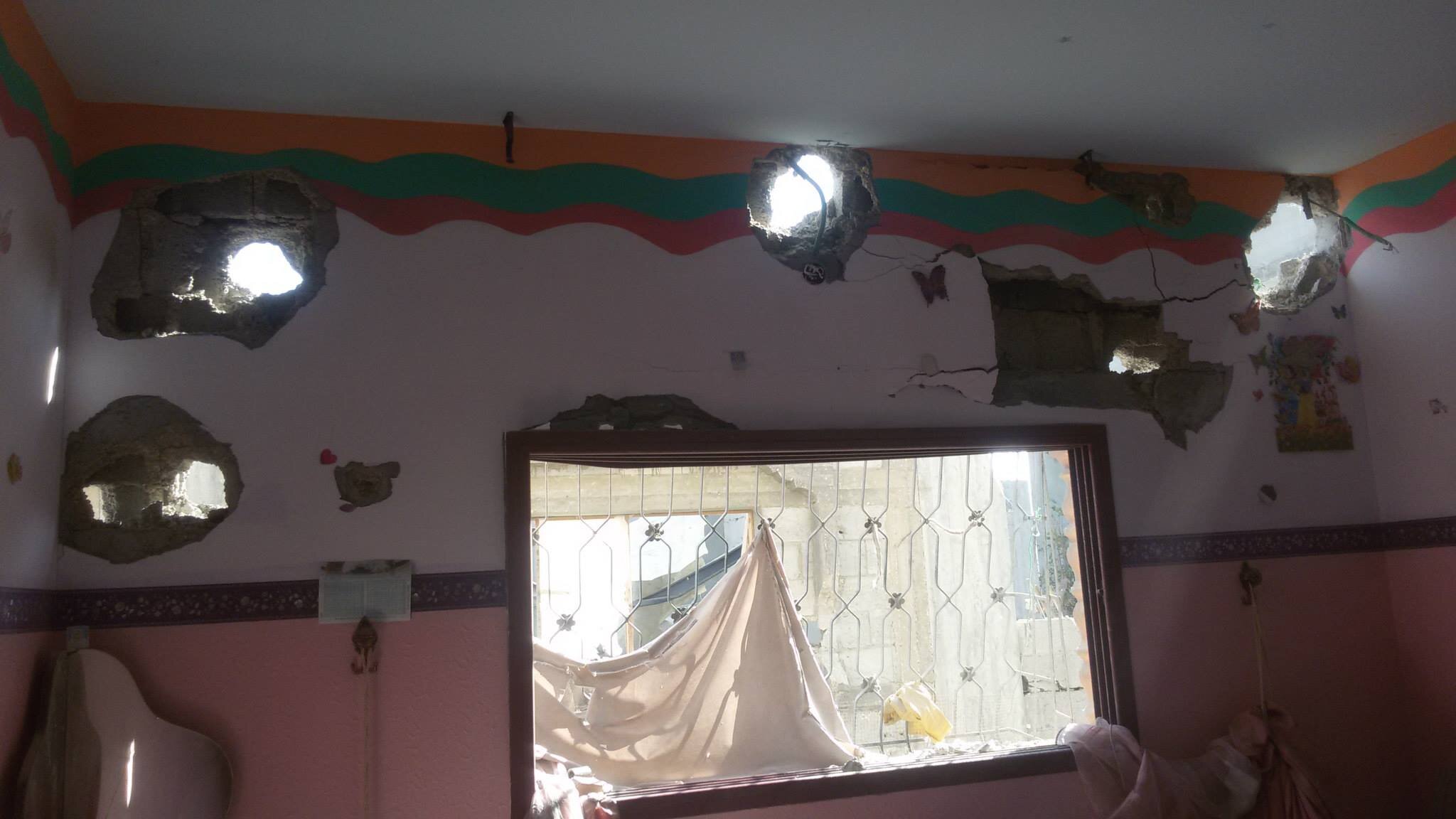Home From Afar
To someone from Gaza, Massachusetts in November feels very cold. Nevertheless, recent news has left me feverish, heart pounding: Israeli warplanes targeted the house of a military leader in Islamic Jihad. He and his wife were killed and their three children wounded. His body, witnesses reported, was found in an UNRWA school opposite their house. Not long after that, dozens of rockets were fired from Gaza into Israeli cities.
I immediately called some friends in Gaza. The first person I reached was a teacher and former colleague who was preparing to go to school. As we spoke, I could hear the buzzing of drones and explosions in the background. The dark music woke hideous memories. Almost involuntarily, I touched my cheek and neck. The shrapnel still buried there makes it all too easy for me to tap into them.
I then called my younger brother, who was still asleep. I tried again and he picked up the phone. He told me he didn’t know about the airstrike in Shujaeyah, but he’d heard some intermittent explosions.
My father was making his morning herbal drink when I called. He assured me everyone was safe and that I should get some rest. I tried to sleep but I worried about waking up to discover someone I know had been hurt. How dare I sleep when friends might be in danger? Experience teaches.
Eventually my body insisted. It was 4 in the afternoon, Gaza-time, when my brother-in-law called, waking me. He was surprised to learn that Gaza is seven hours ahead of the US. “This might be the only area in which Gaza is ahead of the USA,” I said, and we laughed.
Every time there’s another bombing, my neighbors Ibrahim (14) and Jawaher (23), who are my wife’s siblings, declare their determination to leave their house and move in with their grandparents. For some reason they assume they will be safer there. The place where their grandparents live is Beit Lahia, downtown, and seeing many people moving in the street makes them feel safer. Where we live is surrounded by farms, a stretch of barren land with unpaved roads. Most days the landscape is desolate until nightfall, when the neighborhood comes alive with the buzzing of drones which have become as prolific as cicadas in the desert.
Gaza, 2014
A friend from Gaza posted a picture of an UNRWA school, used as a shelter during the previous assault on Gaza in 2014, commenting “That classroom has been reserved for my family.” She expects that one day she and her family might have to evacuate and seek shelter there, hoping no military leaders are hiding among them.
Unfortunately, not even an UNRWA school offers secure refuge. One night in 2014 an UNRWA school in Jabalia Camp in North Gaza was targeted by Israeli bombs. A dozen people died, and many others injured. My family was only two classrooms away from the rooms which had been destroyed. My wife-to-be and her family were sheltered in the classroom next to us.
It still surprises me that, as I write these lines, I continue to get messages from Gazan friends and students who want to send greetings and ask how I am doing, when it should be I who am checking in on them. But I know what they want. They want someone to speak with, someone who is safer than they. That way, safety might visit their homes, and perhaps stay, even if only briefly.
During assaults on Gaza, a martyr is buried less than two hours after his/her death. I am not sure why they do it so quickly. Perhaps they believe that burying him will keep him/her safer, or maybe people expect they’re likely to have other martyrs to bury in the coming hours. It’s not unusual for a mourner to become, a few hours later, one of the mourned.
Mosab Abu Toha is a Palestinian poet, fiction writer, and essayist from Gaza. He is the founder of the Edward Said Public Library, and in 2019-2020 was a visiting poet and scholar at Harvard University. He gave talks and poetry readings at the University of Pennsylvania, Temple University, the University of Arizona (w/ Noam Chomsky), and the American Library Association conference. His work has appeared in Poetry, The Nation, Solstice, Arrowsmith, Progressive Librarian Guild, among others. Mosab is the author of Things You May Find Hidden in My Ear: Poems from Gaza, forthcoming from City Lights Books in April 2022.



